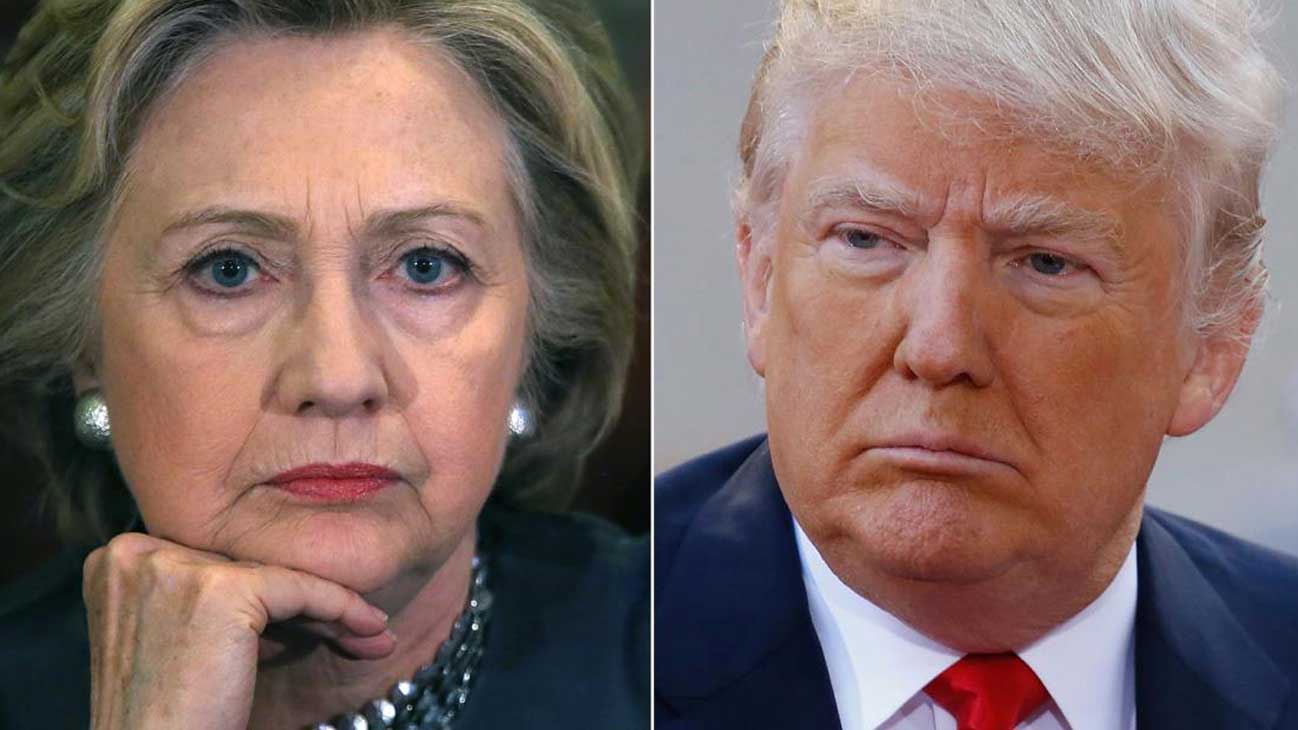Pamela Meyer’s mission is to help people get to the truth. Extensively trained in the use of visual cues and psychology to detect deception, Meyer teaches audiences how to go from lie-spotting to truth-seeking to trust-building. Her riveting TED Talk, How to Spot a Liar, has been viewed over nine million times, making it one of the 20 most popular TED talks of alltime, while her book, Liespotting: Proven Techniques to Detect Deception, was a huge bestseller. Combining her unique understanding of deception with her honed business acumen, Meyer provides audiences with lessons and takeaways that can be immediately put to use. In this piece for CNBC, Meyer takes readers through a “liespotting” exercise using November’s presidential nominees. Who is the more honest of the two? Read on to find out:
This has been an election for testing the boundaries between ignorance and deceit. Both of the major party nominees for president are making history. That is, polls suggest they both have historic levels of untrustworthiness.
Just 30 percent of Americans found Hillary Clinton to be trustworthy, compared to 43 percent who said the same for Donald Trump, according to a July poll by CNN. A CBS poll found similar sentiment.
The latest study by fact-checking group PolitiFact found that 27 percent of Hillary Clinton’s statements were mostly or completely, pants-on-fire false, compared with 70 percent of Trump’s.
Trump said this week at a rally that President Barack Obama founded ISIS.
“He was the founder of ISIS, absolutely,” Trump reiterated in aninterview with CNBC on Thursday morning. (It was actually founded by a guy named Abu Musab al-Zarqawi.)
Trump also said recently that Vladimir Putin wouldn’t “go into Ukraine.” (He did, in 2014).
Clinton has also been known to inflate and embellish. She claimed that she had landed under sniper fire in Bosnia (There was no such fire). She claimed she never sent or received classified material from her private email server (She did).
So, we can establish that both Trump and Clinton have fudged the facts. Beyond statements we can fact check, there are certain behavior and speech patterns that are common when people aren’t being truthful:
1.They offer some form of certainty and reassurance — swearing to God, over-emphasizing truthfulness, etc.
2.They question the question. (Remember when Bill Clinton asked what the definition of “is” was?)
3. They dodge, duck and deflect.
4.They use “minimizing language” to suggest that what seems like a big problem is “no big deal.”
5.They use “qualifying language like, “To tell you the truth…” or “In all honesty” or “As far as I know …”
With those pointers in mind, let’s take a closer look at Clinton and Trump.
Overemphasizing truthfulness and using qualifying language ( No. 1 and No. 5) are favorites for Trump. One of his go-to phrases is “believe me.” He has said: “We’re going to build a wall. Believe me.” And “[Obama] may be the worst thing to happen to Israel. Believe me.”
As someone who specializes in deception, I’ll tell you this much: When someone insistently implores “believe me,” don’t. Pleading “believe me” or “trust me” — insisting to people that you are telling the truth — is a tell-tale sign that you probably aren’t.
No. 3, dodging and deflecting, was evident in Clinton’s handling of her private email server controversy. In a press conference, she deflected a hard question:
QUESTION: Were you ever — were you ever specifically briefed on the security implications of using — using your own email server and using your personal address to email with the president?
CLINTON: I did not email any classified material to anyone on my email. There is no classified material. So I’m certainly well-aware of the classification requirements and did not send classified material.
What’s provoking all the deception? With Clinton it is survival. But with Trump there is a more complicated narcissism. Narcissists have an insatiable need for flattery, for inflated self-worth and importance and for status symbols (big jets, buildings with TRUMP emblazoned across the top) that typically address tremendous feelings of weakness, fear and vulnerability that lie underneath all the bluster and grandiosity. A narcissist can become addicted to the steady stream of reassurance, overlooking reason, truthfulness and facts for the “fix” of reassurance.
A narcissist like Trump must constantly inflate and exaggerate in order to keep the supply trains running. He has to brag about how “I have a very high IQ” or concoct stories about people agreeing with him. This was particularly manifest recently, as Trump said that the NFL, Paul Ryan, and the Koch Brothers all reached out to him about various campaign issues. The NFL, Paul Ryan, and the Koch Brothers all denied Trump’s claim.
New York Times columnist Nicholas Kristof wrote recently that putting Clinton and Trump in the same league, lie-wise, is preposterous. “If deception were a sport, Trump would be the Olympic gold medalist; Clinton would be an honorable mention at her local Y.”
There’s no honor amongst thieves or truth among liars. Clinton wins the honesty race, but with a bit of help from a deeply flawed and conceited opponent. Perhaps that’s a prelude to November.

